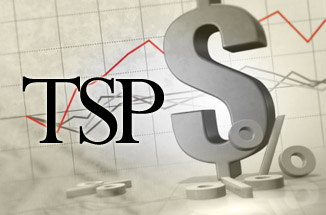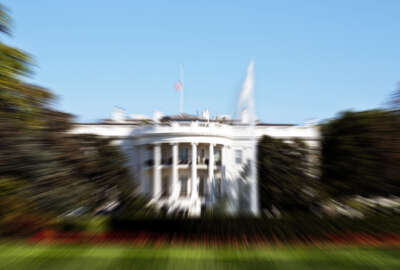
The political whack job in your office
In most cases, government jobs are forever, but Senior Correspondent Mike Causey says there are two easy ways to get fired, especially this time of year.
Compared to the at-will, nonunion private sector, Uncle Sam is a very tolerant employer. Federal civil servants can and do get fired, But not very often. Much of the weeding out is done during an employee’s probation period. By and large, once people are in the career civil service they are there as long as they want to be. Two of the fastest routes to unemployment are being overly political or being a whistleblower. Right now, it is possible to get yourself in real hot water real fast. Especially if there is a political fanatic in your office.
The only thing worse than having a political can’t-shut-up-colleague in the office is if you yourself are the office lout. Maybe you are the one who can’t keep your mouth shut about the election. And one or both of the most unpopular candidates any of us can remember. Maybe you are the problem. Maybe you are the one who can’t resist wearing your political feelings on your sleeve. Or using your government email to take potshots at one candidate or to praise the other.
Did revelations/allegations about The Clinton Foundation and alleged pay-to-play donations send you around the bend? Did the Page One story about Trump’s 1995 tax returns confirm your suspicions? Is there someone in your office — including you — who can’t resist a zinger against one of the candidates, or mounting his or her political soap box from 9 to 5? Ever hear of the Hatch “no politics” Act.
Related Stories
On today’s Your Turn radio show, we’ll be talking about about ways to avoid getting in hot water, getting suspended or fired and fined because of violations of the no-politics-at-the-office law. R. Scott Oswald, managing principal of The Employment Law Group, will talk about why wearing a Hillary For President button or hat to work is not a good idea. Or why having a Donald Trump screen saver at the office is not the way to hold onto your job.
Oswald will talk about the dos and don’ts feds and nonfeds should know about (and supervisors should enforce) involving politics at the office.
He’s also going to talk about whistleblowers. Whistleblowers are heroes to some, villians to others. Some people think NSA /CIA whistleblower Edward Snowden is a traitor and should be treated as such. Others believe he’s a hero who should, at the very least, get the Nobel Peace prize. Others are in between.
But what about whistleblowers in government? The District of Columbia has one of the toughest whistleblower protection laws in the nation. So how does it work? Who does it protect and what, if anything is in it for you should you or a colleague sound the alarm?
Listen today at 10 a.m. EDT for the how-to-avoid getting fired tips. The show is on Federal News Radio or 1500 AM in the metro Washington area. It will also be archived on our website, so if you can’t listen today, or want to pass it on to a friend (or the office political nut) they can listen anytime.
Meantime, its great to be involved. But check your politics in the parking lot.
Don’t miss an episode of Your Turn with Mike Causey by subscribing on iTunes.
Nearly Useless Factoid
The chief point of contention between the residents of Lilliput and Blefuscu in Jonathan Swift’s Gulliver’s Travels was which end one should break an egg, the big end or the little end.
Source: Wikipedia
Copyright © 2025 Federal News Network. All rights reserved. This website is not intended for users located within the European Economic Area.
Mike Causey is senior correspondent for Federal News Network and writes his daily Federal Report column on federal employees’ pay, benefits and retirement.
Follow @mcauseyWFED





